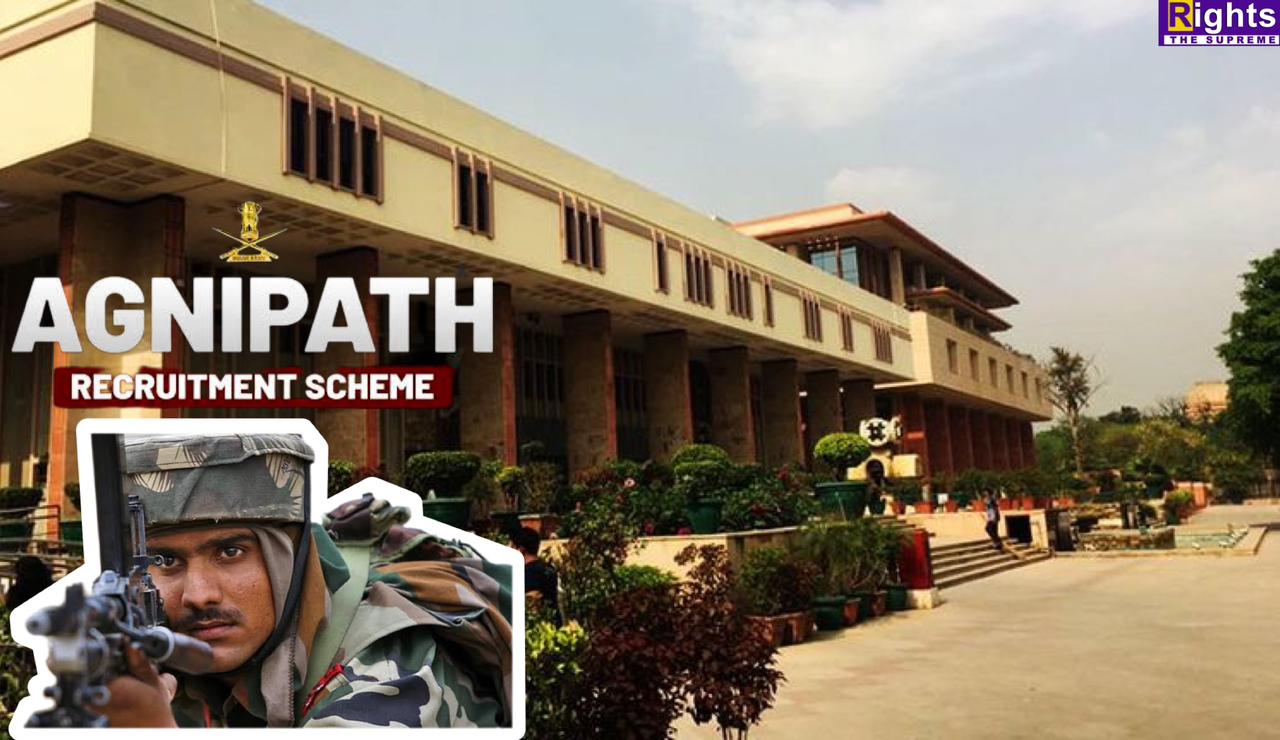Several petitions opposing the Central government’s plan were dismissed by a division bench led by Chief Justice Satish Chandra Sharma and Justice Subramonium Prasad.
The Agnipath scheme for joining in the Indian Armed Forces was upheld by the Delhi High Court on Monday as constitutionally valid. A number of petitions opposing the Central government’s policy were dismissed by a division bench led by Chief Justice Satish Chandra Sharma and Justice Subramonium Prasad, who stated that the scheme was introduced in the national interest.
“This court finds no reason to interfere with the scheme. We have extensively gone through the Agnipath Scheme, and can conclusively state that this Scheme was made in national interest, to ensure that the Armed Forces are better equipped. All petitions are dismissed.”
The four years of training under the scheme would also instill a sense of nationalism in the recruits, which would “more or less prompt them to use their skills and focus on the development of the country,” the court stated in response to petitions that questioned the scheme’s constitutional legitimacy.
“Such advantages cannot be overlooked and dislodged on the basis of the apprehension that after four years such individuals may be unemployed or may take to illegal or unethical activities,” the court said.
The court dismissed petitions pertaining to the Military Forces recruitment procedure under some prior advertising as well as arguments contesting the Agnipath scheme, while making it clear that such applicants do not have the right to seek recruitment. Regarding the Agniveers’ pension request, the court ruled that the petitioners were unaware that, unlike many other countries, the Indian government does not require youth to serve in the armed forces. The government’s alleged failure to create provisions for the future meaningful employment of Agniveers was likewise rejected by the court as having no substance.
“The petitioners have no vested right to claim that the recruitment under the 2019 Notification and CEE Examination needs to be completed. Furthermore, both promissory estoppel and legitimate expectation cannot be applied in the instant case to force the Government to complete the recruitment keeping in mind larger public interest, the Government has in fact sought to extend entrepreneurship financial schemes such as MUDRA and Start-Up India to Agniveers as well.”
The Supreme Court assigned the Delhi High Court as the primary forum to consider whether the Agnipath programme is legitimate in July 2022, adding that various litigation attempts were “neither desirable nor proper.” As a result, the Delhi High Court is presently hearing various applications challenging the plan.
On December 15, 2022, the court had reserved its decision regarding the group of pleas. The Centre has defended the Agnipath scheme, asserting that its main goal was to improve the Armed Forces’ youthful image and gradually lower the average age of soldiers from 32 to 26 years old. The introduction of the Agnipath scheme, one of the most extensive changes in the armed forces, sparked protests in many regions of the nation from candidates preparing to join the Indian Army, Navy, and Air Force.
The scheme calls for a four-year temporary induction of youth into the armed forces. Such youth will be referred to as Agniveer and only 25% of the chosen applicants will be permitted to join the military on a regular basis after this time, and the remaining candidates will be retired.
When joining the Indian Army, Navy, or Air Force, the time spent as an Agniveer will not be counted as regular service. That is, once an Agniveer joins the armed forces after four years, it will be considered as a new recruitment. Several petitions were filed in High Courts across the country challenging the scheme, as well as a halt on the recruitment processes, for which applications were invited prior to the announcement of Agnipath.

